ZHENCHEN LIU
Opening 3 June 5 - 8 pm
Soledad Senlle Gallery is pleased to present a solo exhibition by the Chinese artist Zhenchen Liu.
A selection of Zhenchen Liu's videos and photographic work will be highlighted during this presentation. Liu divides his time between Paris and Shanghai. Whenever he goes back to Shanghai, he hardly recognizes his birthplace. In his work he brings out the alarming transformation of the Chinese metropolis, where every year almost one hundred thousand families are forced to move out of their homes. In a certain way, his films are documentaries about the frenetic way in which developers flatten and reconstruct whole neighbourhoods, leaving expropriated residents out on the street. He uses a personal poetics to accentuate the surrealism of the scale and speed of this metamorphosis, where the past is eradicated in favor of a modern but insane vision of the future. His camera glides with fluidity over ghostly panoramas of desolation, in which reality and fantasy intersect. The distance between the insinuated violence and the graceful style of his films gives Zhenchen Liu's work a remarkable tension.
In Soledad Senlle Gallery his newest video "The most powerful flowers in Art 2010" will be presented. With this work Zhenchen Liu criticizes the system of power of the contemporary art world. His video is inspired by the list of 100 most powerful people in the arts in 2010. In a kaleidoscopic video work, Liu shows the portraits of these 100 most powerful people as beautiful colorful flowers that bloom to then perish.
Zhenchen Liu (1976, China) lives and works in China and France. His work is part of many public and private collections such as the collection of the Centre Pompidou in Paris. His work has been shown at international exhibitions in Europe, China, Australia, Canada and the U.S., such as the Locarno International Film Festival, the Oberhausen Festival, Rencontres Internationales at the Circulo de Bellas Artes in Madrid, Cinéma du Réel at the Centre Pompidou in Paris, ‘Dans la Nuit, des Images' at the Grand Palais in Paris, Les Rencontres d'Arles, Museo Nacional Centro de Arte Reina Sofía in Madrid, the KW Institute for Contemporary Art in Berlin and Transmediale Berlin 2008. He has been awarded numerous prizes at major international festivals, including the prize for best short film at the Sao Paulo Film Festival and the Prix Studio Collecteur from Le Fresnoy - Studio national des arts Contemporains.
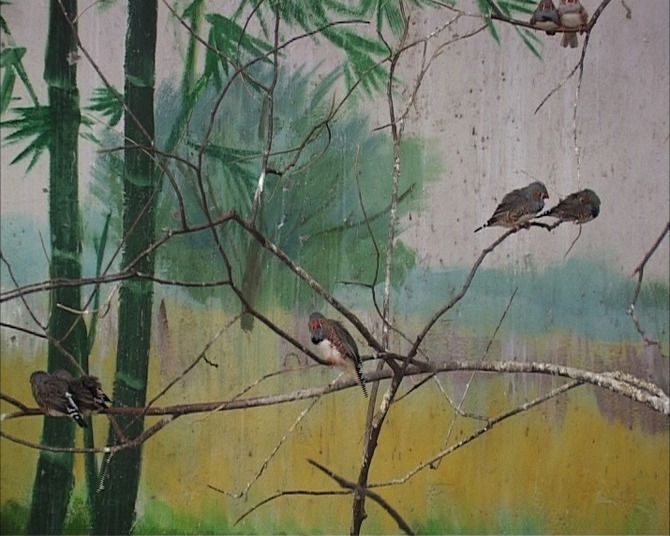
Zhenchen Liu (CN) Shanghai Shanghai, 2006
12min/color/4/3/dolby surround,
Rai, Amsterdam
Shanghai Shanghai presents Shanghai as it is conceived, thought out, imagined in models, virtually rendered videos, and the reality of the city. The film confronts three types of images: utopian images of the city; metaphorical images; and documentary images, “real” images from today.
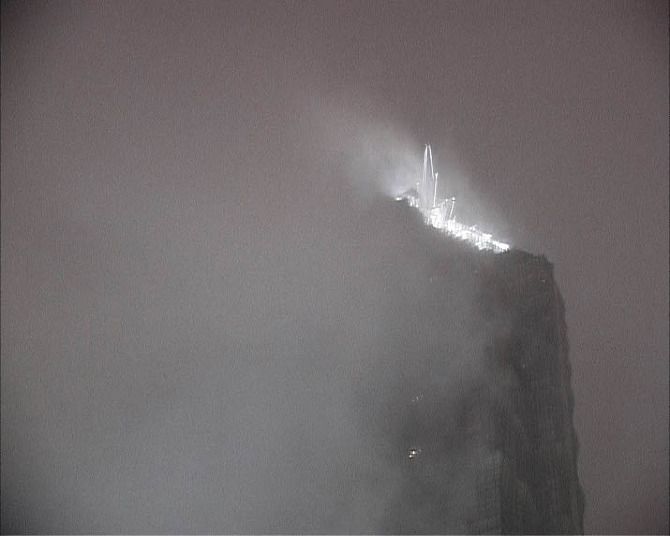
Zhenchen Liu (CN) Shanghai Shanghai, 2006
12min/color/4/3/dolby surround,
Rai, Amsterdam
Shanghai Shanghai presents Shanghai as it is conceived, thought out, imagined in models, virtually rendered videos, and the reality of the city. The film confronts three types of images: utopian images of the city; metaphorical images; and documentary images, “real” images from today.
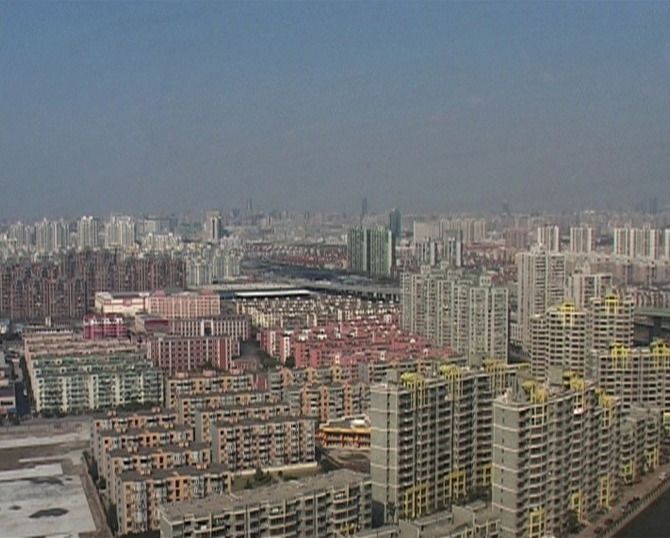
Zhenchen Liu (CN) Shanghai Shanghai, 2006
12min/color/4/3/dolby surround,
Rai, Amsterdam
Shanghai Shanghai presents Shanghai as it is conceived, thought out, imagined in models, virtually rendered videos, and the reality of the city. The film confronts three types of images: utopian images of the city; metaphorical images; and documentary images, “real” images from today.
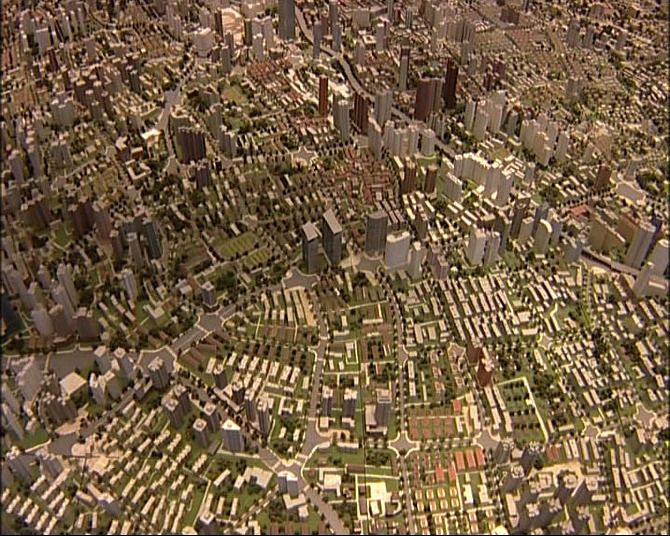
Zhenchen Liu (CN) Shanghai Shanghai, 2006
12min/color/4/3/dolby surround,
Rai, Amsterdam
Shanghai Shanghai presents Shanghai as it is conceived, thought out, imagined in models, virtually rendered videos, and the reality of the city. The film confronts three types of images: utopian images of the city; metaphorical images; and documentary images, “real” images from today.
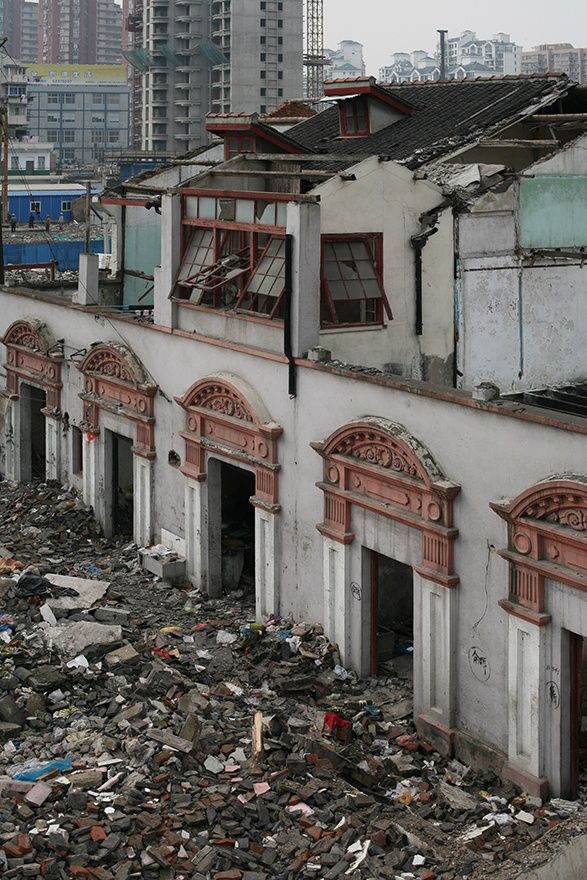
Zhenchen Liu (CN) Under construction, 2007
Photography and video,
Sloterkade 171, Amsterdam
Zhenchen Liu divides his time between Paris and Shanghai. Whenever he goes back to Shanghai, he hardly recognizes his birthplace. In his work he brings out the alarming transformation of the Chinese metropolis, where every year almost one hundred thousand families are forced to move out of their homes. In a certain way, his films are documentaries about the frenetic way in which developers flatten and reconstruct whole neighbourhoods, leaving expropriated residents out on the street. He uses a personal poetics to accentuate the surrealism of the scale and speed of this metamorphosis, where the past is eradicated in favor of a modern but insane vision of the future. His camera glides with fluidity over ghostly panoramas of desolation, in which reality and fantasy intersect. The distance between the insinuated violence and the graceful style of his films gives Zhenchen Liu's work a remarkable tension.
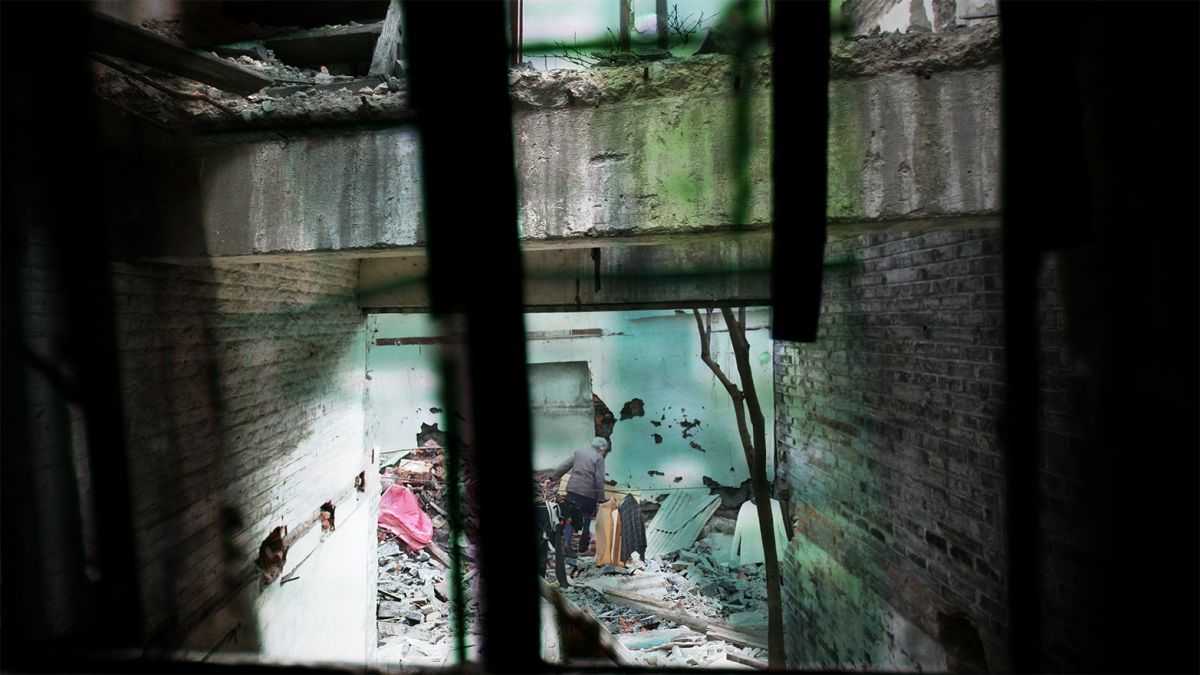
Zhenchen Liu (CN) Under construction, 2007
Photography and video,
Sloterkade 171, Amsterdam
Zhenchen Liu divides his time between Paris and Shanghai. Whenever he goes back to Shanghai, he hardly recognizes his birthplace. In his work he brings out the alarming transformation of the Chinese metropolis, where every year almost one hundred thousand families are forced to move out of their homes. In a certain way, his films are documentaries about the frenetic way in which developers flatten and reconstruct whole neighbourhoods, leaving expropriated residents out on the street. He uses a personal poetics to accentuate the surrealism of the scale and speed of this metamorphosis, where the past is eradicated in favor of a modern but insane vision of the future. His camera glides with fluidity over ghostly panoramas of desolation, in which reality and fantasy intersect. The distance between the insinuated violence and the graceful style of his films gives Zhenchen Liu's work a remarkable tension.
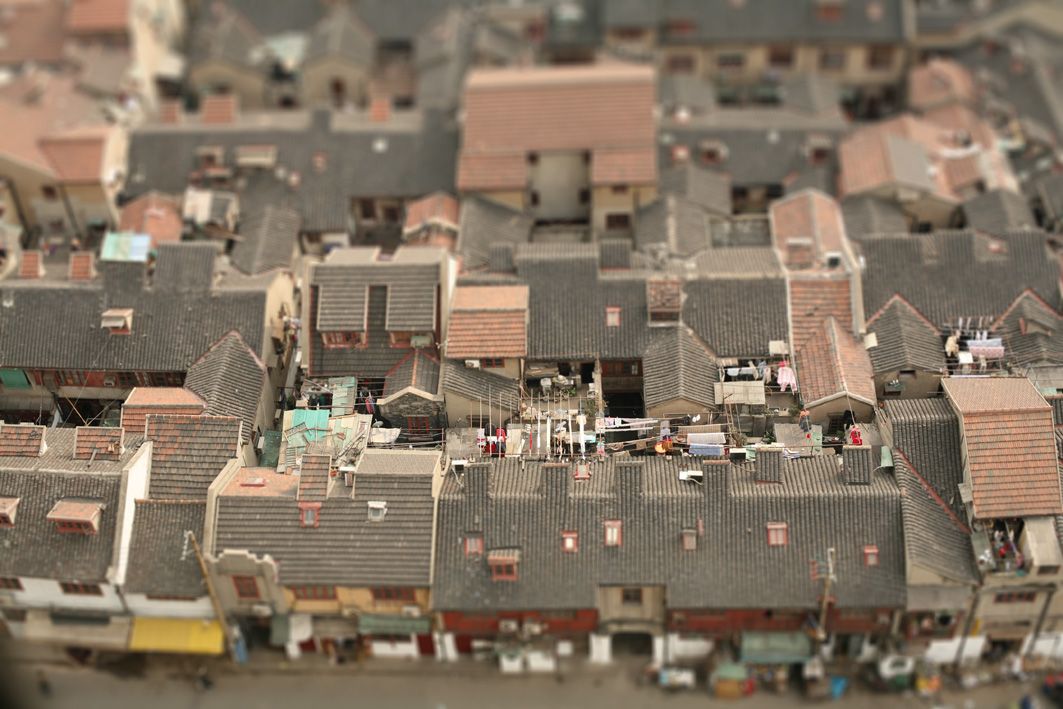
Zhenchen Liu (CN) Untitled, 2008
Photography,
Sloterkade 171, Amsterdam
Zhenchen Liu divides his time between Paris and Shanghai. Whenever he goes back to Shanghai, he hardly recognizes his birthplace. In his work he brings out the alarming transformation of the Chinese metropolis, where every year almost one hundred thousand families are forced to move out of their homes. In a certain way, his films are documentaries about the frenetic way in which developers flatten and reconstruct whole neighbourhoods, leaving expropriated residents out on the street. He uses a personal poetics to accentuate the surrealism of the scale and speed of this metamorphosis, where the past is eradicated in favor of a modern but insane vision of the future. His camera glides with fluidity over ghostly panoramas of desolation, in which reality and fantasy intersect. The distance between the insinuated violence and the graceful style of his films gives Zhenchen Liu's work a remarkable tension.
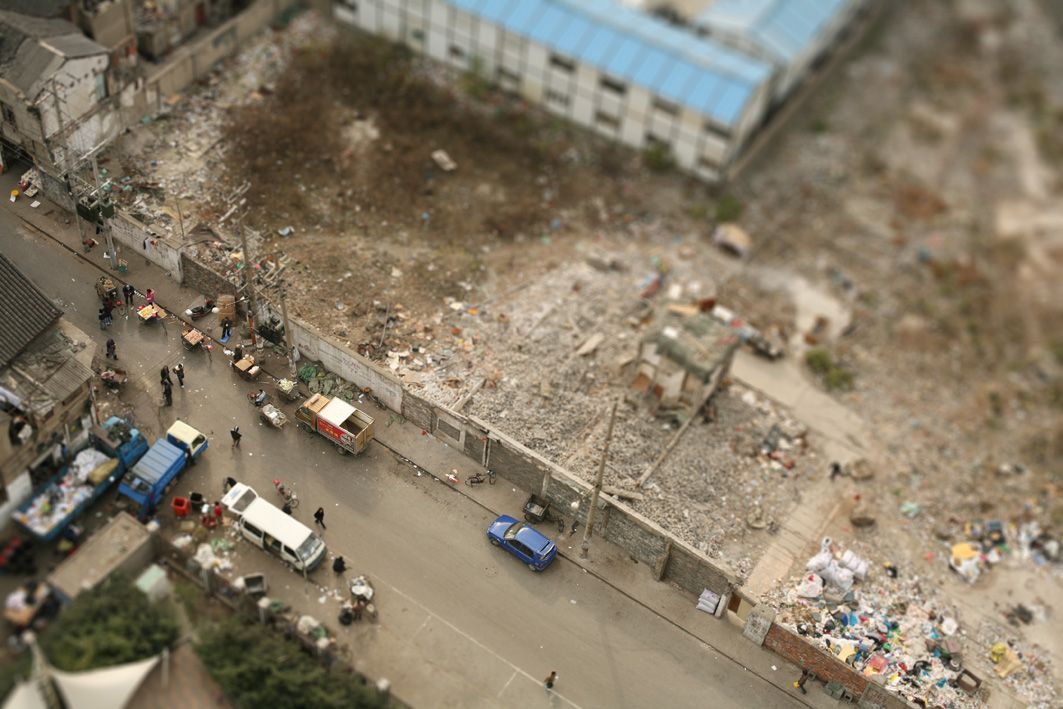
Zhenchen Liu (CN) Untitled, 2008
Photography,
Sloterkade 171, Amsterdam
Zhenchen Liu divides his time between Paris and Shanghai. Whenever he goes back to Shanghai, he hardly recognizes his birthplace. In his work he brings out the alarming transformation of the Chinese metropolis, where every year almost one hundred thousand families are forced to move out of their homes. In a certain way, his films are documentaries about the frenetic way in which developers flatten and reconstruct whole neighbourhoods, leaving expropriated residents out on the street. He uses a personal poetics to accentuate the surrealism of the scale and speed of this metamorphosis, where the past is eradicated in favor of a modern but insane vision of the future. His camera glides with fluidity over ghostly panoramas of desolation, in which reality and fantasy intersect. The distance between the insinuated violence and the graceful style of his films gives Zhenchen Liu's work a remarkable tension.
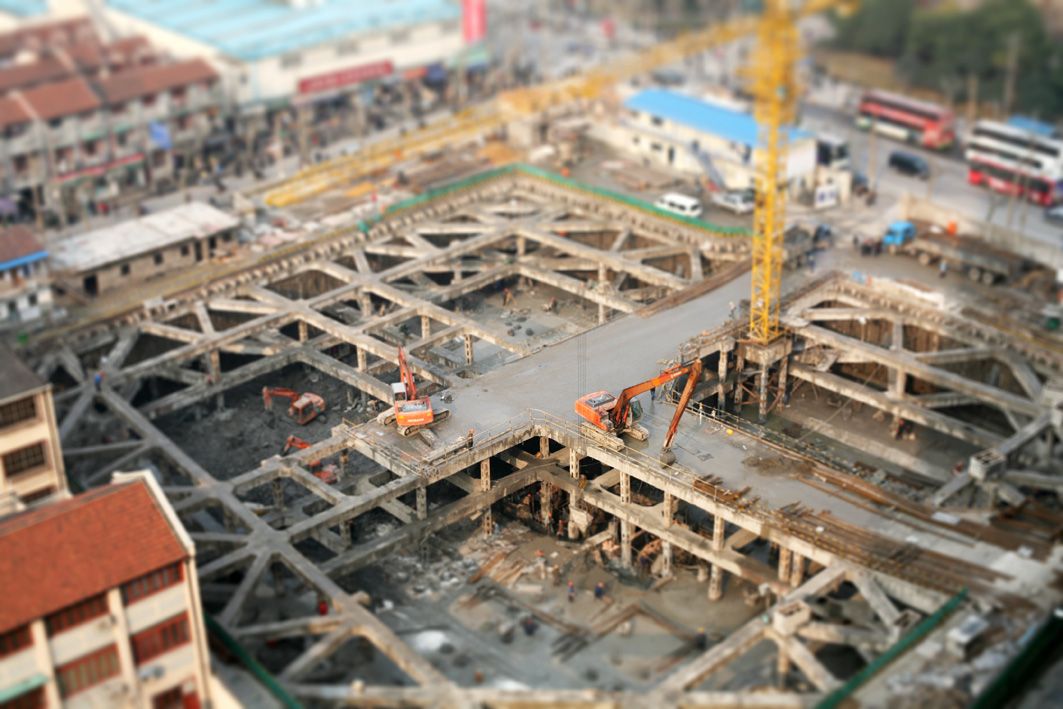
Zhenchen Liu (CN) Untitled, 2008
Photography,
Sloterkade 171, Amsterdam
Zhenchen Liu divides his time between Paris and Shanghai. Whenever he goes back to Shanghai, he hardly recognizes his birthplace. In his work he brings out the alarming transformation of the Chinese metropolis, where every year almost one hundred thousand families are forced to move out of their homes. In a certain way, his films are documentaries about the frenetic way in which developers flatten and reconstruct whole neighbourhoods, leaving expropriated residents out on the street. He uses a personal poetics to accentuate the surrealism of the scale and speed of this metamorphosis, where the past is eradicated in favor of a modern but insane vision of the future. His camera glides with fluidity over ghostly panoramas of desolation, in which reality and fantasy intersect. The distance between the insinuated violence and the graceful style of his films gives Zhenchen Liu's work a remarkable tension.
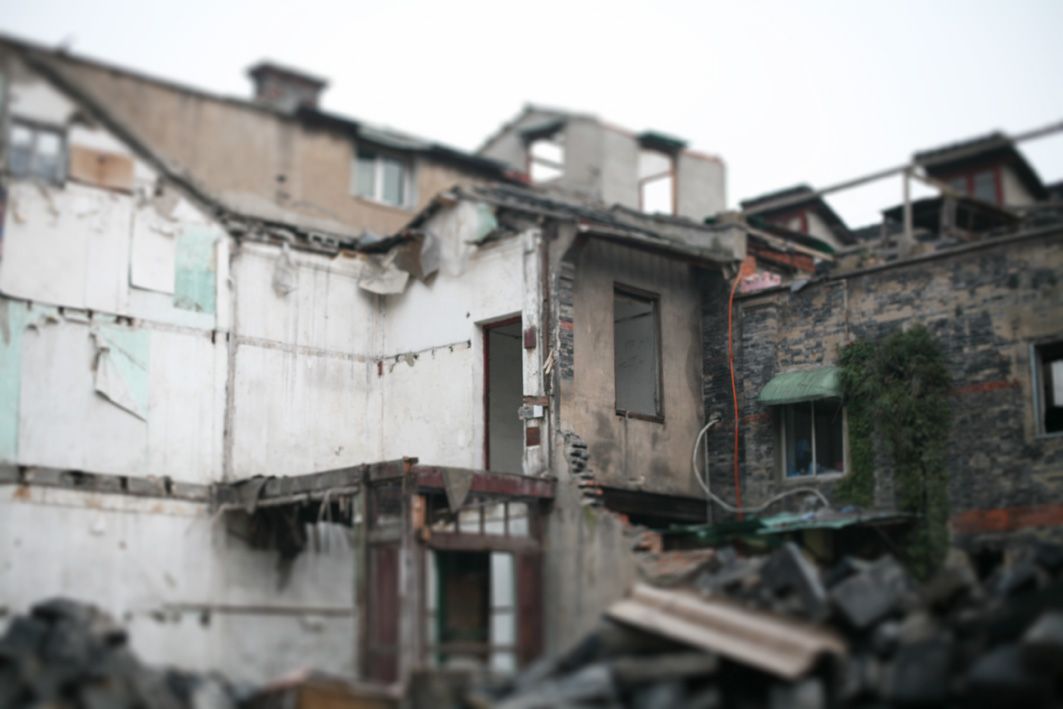
Zhenchen Liu (CN) Untitled, 2008
Photography,
Sloterkade 171, Amsterdam
Zhenchen Liu divides his time between Paris and Shanghai. Whenever he goes back to Shanghai, he hardly recognizes his birthplace. In his work he brings out the alarming transformation of the Chinese metropolis, where every year almost one hundred thousand families are forced to move out of their homes. In a certain way, his films are documentaries about the frenetic way in which developers flatten and reconstruct whole neighbourhoods, leaving expropriated residents out on the street. He uses a personal poetics to accentuate the surrealism of the scale and speed of this metamorphosis, where the past is eradicated in favor of a modern but insane vision of the future. His camera glides with fluidity over ghostly panoramas of desolation, in which reality and fantasy intersect. The distance between the insinuated violence and the graceful style of his films gives Zhenchen Liu's work a remarkable tension.
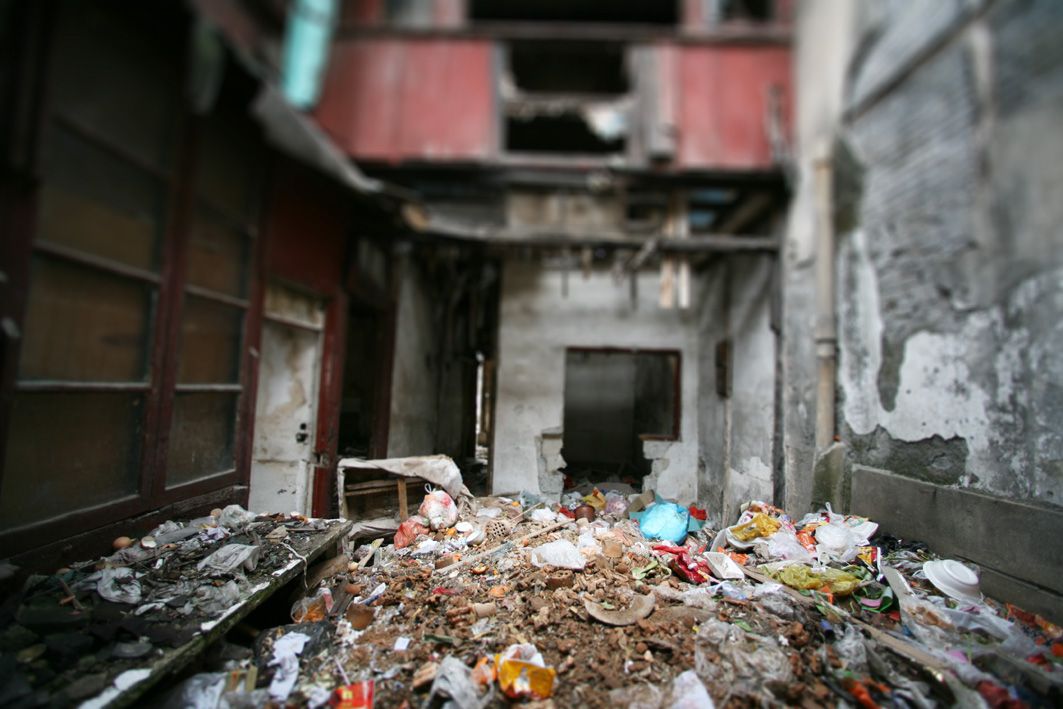
Zhenchen Liu (CN) Untitled, 2008
Photography,
Sloterkade 171, Amsterdam
Zhenchen Liu divides his time between Paris and Shanghai. Whenever he goes back to Shanghai, he hardly recognizes his birthplace. In his work he brings out the alarming transformation of the Chinese metropolis, where every year almost one hundred thousand families are forced to move out of their homes. In a certain way, his films are documentaries about the frenetic way in which developers flatten and reconstruct whole neighbourhoods, leaving expropriated residents out on the street. He uses a personal poetics to accentuate the surrealism of the scale and speed of this metamorphosis, where the past is eradicated in favor of a modern but insane vision of the future. His camera glides with fluidity over ghostly panoramas of desolation, in which reality and fantasy intersect. The distance between the insinuated violence and the graceful style of his films gives Zhenchen Liu's work a remarkable tension.